Breaking News


Popular News

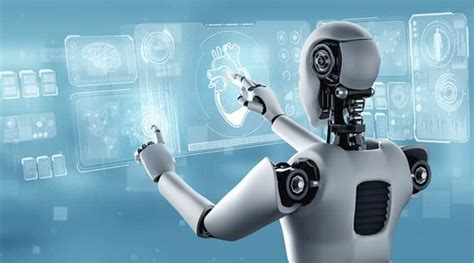
Explore the latest advancements in robotics, their impact on industries, and ethical considerations. Discover predictions and challenges shaping the future of robotics.In today’s rapidly evolving technological landscape, robotics has emerged as a groundbreaking field with the potential to revolutionize various industries and aspects of daily life. From manufacturing and healthcare to transportation and beyond, the advancements in robotics are reshaping the way we live and work. In this blog post, we will delve into the world of robotics, exploring its current technological advancements and the impact it has on various industries. We will also examine the challenges that come with developing and implementing robotic technology, as well as the ethical considerations that arise with its use. Finally, we will take a look at the future of robotics, making predictions about the direction in which this field is heading. Join us as we explore the exciting world of robotics and discuss the advancements and challenges that lie ahead.
Contents
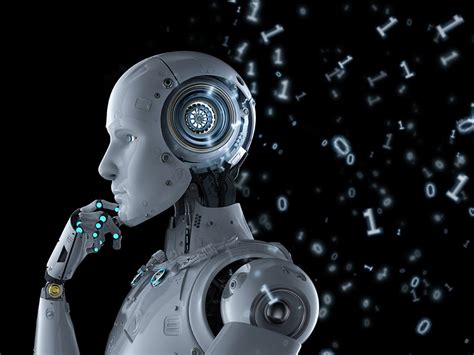
Robotics is a field of engineering and science that involves the design, construction, operation, and use of robots. These robots can be used to perform a variety of tasks, from simple household chores to complex industrial processes. The field of robotics also includes the study of how to control these robots and the development of artificial intelligence and machine learning algorithms to improve their capabilities.
Advancements in robotics have led to the development of robots that can perform tasks that were once thought to be impossible for machines. These advancements have had a significant impact on a wide range of industries, from manufacturing and healthcare to agriculture and transportation.
Robots are also being used in increasingly complex and sophisticated ways, such as in space exploration and in the development of autonomous vehicles. As the field of robotics continues to advance, researchers and engineers are faced with a number of challenges, including the development of more advanced and reliable robot systems, as well as ethical considerations related to the use of robots in society.

In the rapidly evolving field of robotics, technological advancements are occurring at a breakneck pace. One of the most significant advancements in recent years has been the development of artificial intelligence (AI) and machine learning algorithms. These technologies have allowed robots to become more autonomous and adaptable, enabling them to perform increasingly complex tasks with minimal human intervention.
Another important advancement is in the area of sensors and perception systems, which have greatly enhanced the ability of robots to interact with their environment. Advanced sensors such as lidar, cameras, and tactile sensors enable robots to perceive and understand their surroundings, allowing them to navigate through complex environments and interact with objects in their environment with greater precision.
Furthermore, advancements in materials science and manufacturing technologies have led to the development of more dexterous and agile robots. New materials and fabrication methods have enabled the creation of robots with greater strength, flexibility, and durability, allowing them to perform a wider range of tasks with greater efficiency and precision.
Overall, the current technological advancements in robotics are making robots more capable and versatile than ever before, opening up new possibilities for their use in a wide range of industries and applications.

As the field of robotics continues to advance, its impact on various industries becomes increasingly significant. Robotic technology has revolutionized the manufacturing industry, leading to increased productivity and efficiency. Automation in factories has resulted in faster production rates and reduced labor costs, ultimately leading to higher profits for businesses. In the healthcare sector, robots have played a crucial role in performing complex surgeries and providing assistance to patients. The use of robotic devices has also proven beneficial in the agricultural industry, with automated machinery being utilized to plant, harvest, and maintain crops, thereby improving overall crop yields.
Additionally, the impact of robotics extends to the transportation and logistics industry, where automated vehicles and drones are being employed for efficient delivery and shipping processes. This has led to faster and more accurate deliveries, enhancing the overall customer experience. Furthermore, robots are being integrated into the construction industry to handle tasks that are labor-intensive and hazardous, thus improving safety and productivity on job sites. The introduction of robotic technology has also had a notable impact on the retail sector, with the use of autonomous robots for inventory management and customer service, leading to improved operational efficiency and customer satisfaction.
Overall, the integration of robotics across various industries has led to increased efficiency, productivity, and safety, while also opening up new opportunities for innovation and growth. As technology continues to advance, the potential for robotics to transform and revolutionize other industries is immense, paving the way for a more interconnected and automated future.
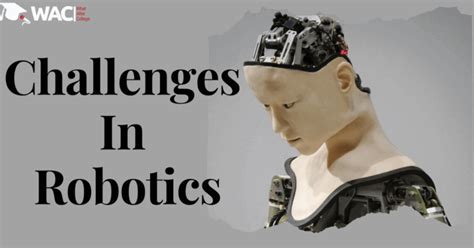
As technology advances, so does the development of robotics. However, with this progress comes a host of challenges that developers must face in order to create effective and efficient robotic systems.
One of the main challenges in robotic development is ensuring the safety of the robots and their interactions with humans. This involves creating robots that can recognize and respond to human presence, as well as implementing safety protocols to prevent accidents and injuries.
Another challenge is the issue of artificial intelligence and machine learning. As robots become more advanced, there is a need to ensure that they are capable of making decisions and performing tasks accurately and ethically, without posing a risk to society.
Furthermore, the cost and resources required for developing and maintaining robotics systems can be a significant challenge for developers. This includes the time and expertise needed to design, build, and test these complex systems, as well as the financial investment required to support ongoing research and development.
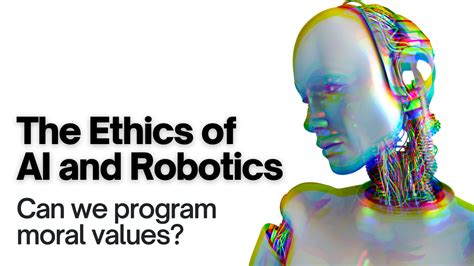
The Future of Robotics: Advancements and Challenges
Ethical Considerations in Robotics
With the rapid advancements in robotics technology, there are a number of ethical considerations that need to be addressed. As robots become more integrated into various aspects of our lives, it is important to consider the impact that they will have on society and the individuals who interact with them. One of the key ethical considerations in robotics is the potential for job displacement. As robots become more advanced, there is a risk that they will replace human workers in various industries, leading to unemployment and economic instability.
Another ethical consideration is the potential for robots to be used for harmful purposes. As robots become more autonomous and capable of making complex decisions, there is a risk that they could be used for malicious intent. This raises significant ethical concerns about the potential consequences of allowing such powerful technology to fall into the wrong hands.
Furthermore, there are ethical concerns surrounding the potential for robots to infringe upon individual privacy. With the development of advanced surveillance and monitoring technologies, there is a risk that robots could be used to invade the privacy of individuals in both public and private spaces. This raises important ethical questions about the boundaries of privacy and the potential for exploitation.
| Key Ethical Considerations in Robotics | Impact |
|---|---|
| Job displacement | Unemployment, economic instability |
| Malicious use | Potential harm, ethical concerns |
| Privacy invasion | Individual rights, exploitation |
In conclusion, the ethical considerations in robotics are complex and multifaceted. It is crucial for developers, policymakers, and society as a whole to address these considerations in order to ensure that robotics technology is used in an ethical and responsible manner. By addressing these ethical concerns, we can ensure that the future of robotics is one that benefits humanity as a whole.
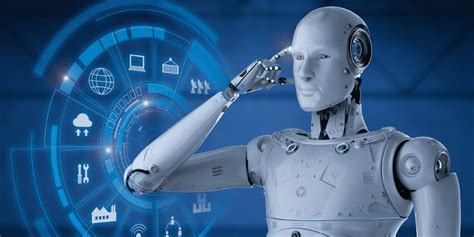
As we look into the crystal ball of technological innovation, it is evident that the future of robotics holds great promise. With the rapid pace of technological advancements, it is predicted that robots will play an increasingly integral role in various industries in the coming years. From healthcare to manufacturing, the impact of robotics is expected to grow exponentially, revolutionizing the way we live and work.
One of the key predictions for the future of robotics is the widespread integration of artificial intelligence (AI) into robotic systems. This will enable robots to adapt and learn from their environment, making them more autonomous and versatile. As a result, robots will be able to perform a wider range of tasks with greater efficiency and precision, leading to increased productivity and cost savings across industries.
Another important prediction is the development of collaborative robots (cobots), which are designed to work alongside humans in a shared workspace. These robots will not only enhance the capabilities of human workers, but also improve safety and ergonomics in the workplace. As a result, we can expect to see a shift towards more collaborative and flexible manufacturing processes, where robots and humans work together seamlessly.
However, alongside these exciting predictions, there are also challenges that must be addressed as we pave the way for the future of robotics. One such challenge is the ethical considerations surrounding the use of autonomous robots. As robots become more advanced and independent, questions arise about their decision-making capabilities and the potential risks they pose to humans. It is crucial for researchers, developers, and policymakers to establish guidelines and regulations to ensure the safe and ethical deployment of robotic technologies.

What are some recent advancements in robotics?
Recent advancements in robotics include the development of more advanced AI algorithms, the use of collaborative robots in various industries, and the improvement of robotic exoskeletons for medical and industrial applications.
What are the potential benefits of advancements in robotics?
Advancements in robotics have the potential to improve efficiency in manufacturing, healthcare, and other industries, as well as create new job opportunities in robotics development and maintenance.
What are the challenges in the future of robotics?
Challenges in the future of robotics include ethical considerations surrounding the use of robots, the potential impact on employment, and the need for regulations to ensure the safe and ethical use of robotics technology.
How will advancements in robotics impact our daily lives?
Advancements in robotics have the potential to improve healthcare through robotic surgery and assistive devices, enhance transportation through autonomous vehicles, and streamline household tasks with the use of domestic robots.
What industries are most likely to benefit from advancements in robotics?
Industries such as manufacturing, healthcare, agriculture, logistics, and construction are most likely to benefit from advancements in robotics, as they can improve productivity, accuracy, and safety in these sectors.
What are some examples of cutting-edge robotics technology?
Cutting-edge robotics technology includes soft robots inspired by natural organisms, swarm robotics for collaborative tasks, and the development of humanoid robots with advanced dexterity and AI capabilities.
What are the potential risks associated with the future of robotics?
Potential risks associated with the future of robotics include job displacement due to automation, cybersecurity threats related to the use of robots, and the potential for misuse of autonomous weapons and surveillance robots.